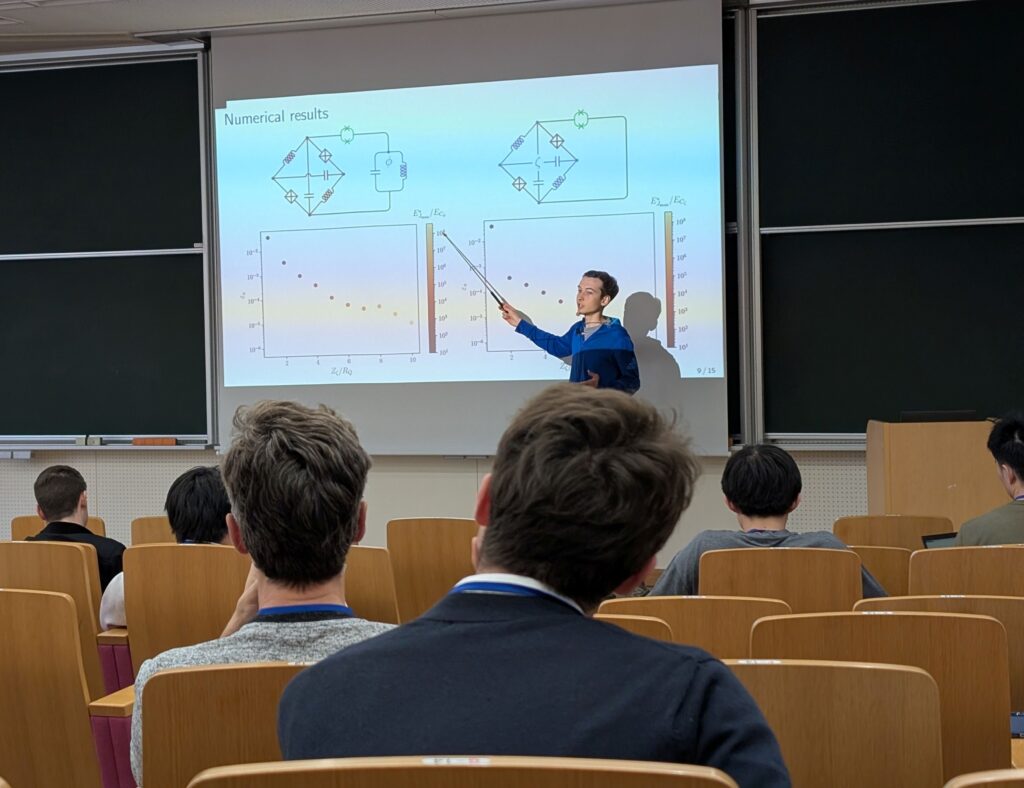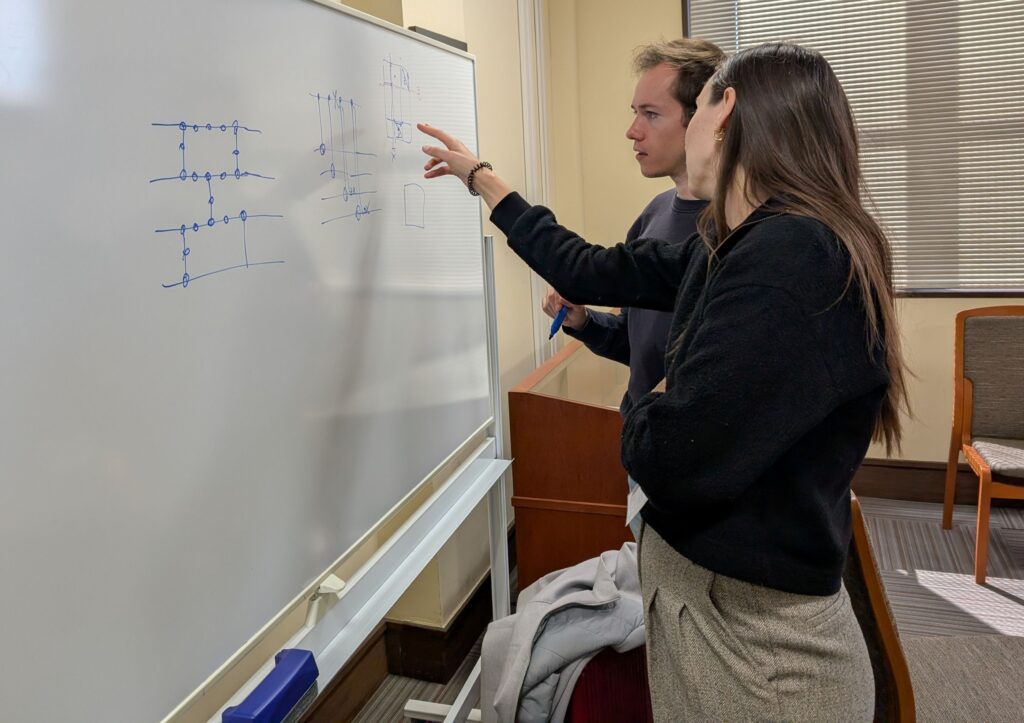Quantum Theory Group’s Lucas English, Nicholas Fazio, Xanda Kolesnikow, Dr Campbell McLauchlan, Dr Georgia Nixon, and Rebecca Radebold made notable presentations at the 2025 Logical Gates for Encoded Qubits Workshop held at Kyoto University’s Yukawa Institute for Theoretical Physics (YITP). The workshop, which ran from April 7 to 18, focused on advancing theoretical gate design and implementation for encoded qubits – including but not limited to, finding gates for high-rate LDPC codes, decoding beyond memory mode, gates for codes beyond stabilizer codes, code switching, measurement-based implementations, gate design for bosonic codes.
USYD researchers presented on several fronts in what was a very niche workshop according to Rebecca Radebold. “I learned more in those two weeks about quantum error correction than I have in months of reading papers on my own.” Rebecca presented her talk on Generating Explicit Instances of Quantum Tanner Codes.
Other talks presented by the USYD cohort include:
- Lucas English, The Ising on the Donut: Regimes of Topological QEC from Statistical Mechanics
- Xanda Kolesnikow, Protected Phase Gates for the 0-π Qubit using Internal Modes
- Nicholas Fazio, Characterising a Transversal CNOT via Cycle Error Reconstruction
- Dr Campbell McLauchlan, Single Shot Decoding and Fault Tolerant Logic with Tri-variate Tricycle Codes
- Dr Georgia Nixon, Characterising the Failure Mechanisms of Error-corrected Quantum Logic Gates
Beyond formal talks, the USYD team, including alumni engaged in collaborative sessions that explored approaches to gate design. Radebold describes the workshop as “a fantastic opportunity to connect with people doing very similar or highly relevant work to my own, and I still regularly talk to a number of them, exchanging literature, gathering ideas, and asking questions.”




Dr Dominic Williamson, who presented at this year’s workshop and recently joined Quantum Theory Group as a group leader emphasises that, “quantum error correction is crucial in the design of useful quantum computers. Recent advances in low-overhead quantum codes have raised the significant challenge of how to perform universal quantum logic gates on these codes. At the YITP workshop in Kyoto we heard about the latest advances on fault-tolerant logic gates.”
Quantum Science Group’s presence underscored Australia’s strategic investment in quantum research and the University of Sydney’s role as a key player in the global quantum ecosystem.
